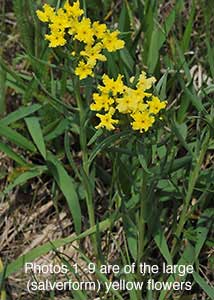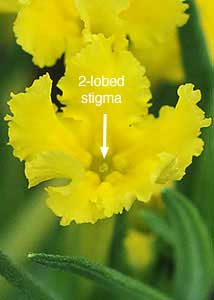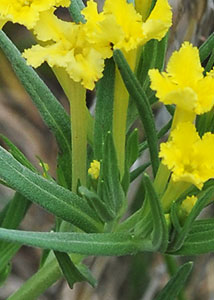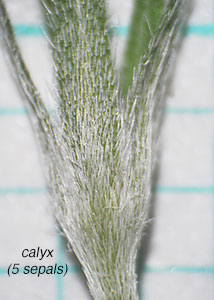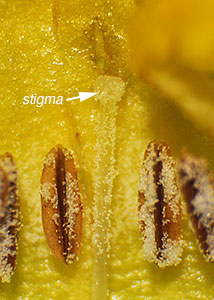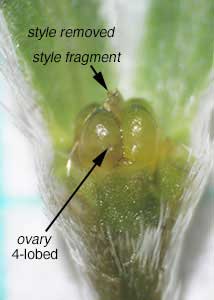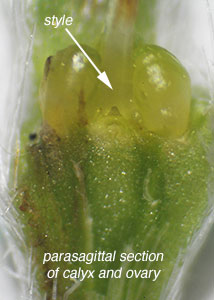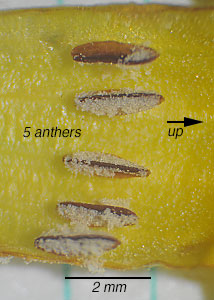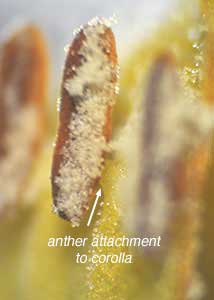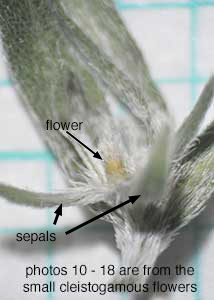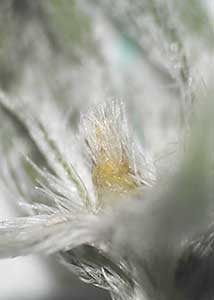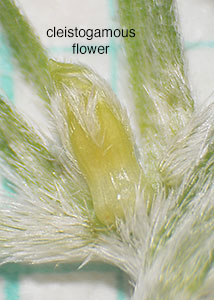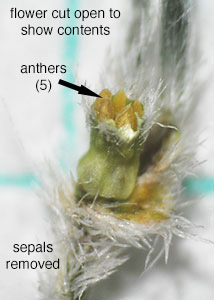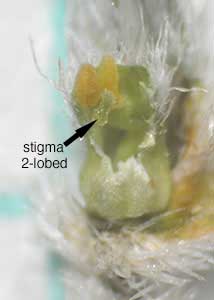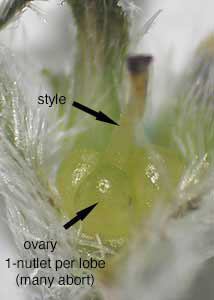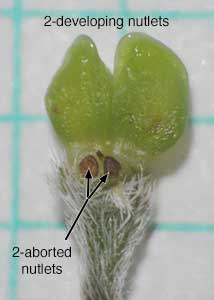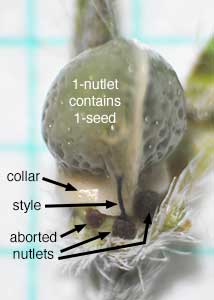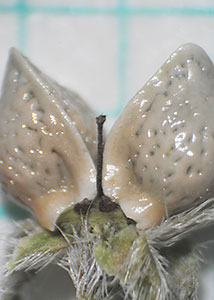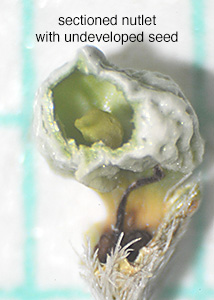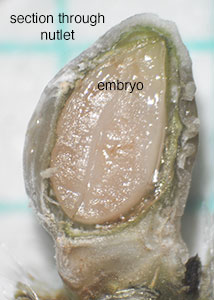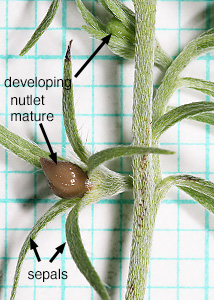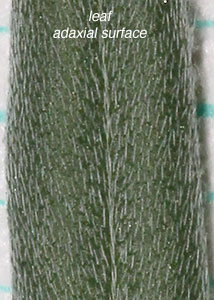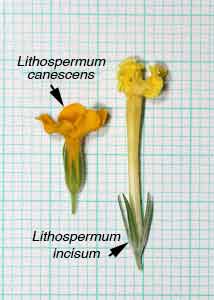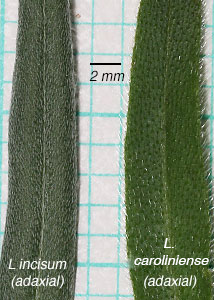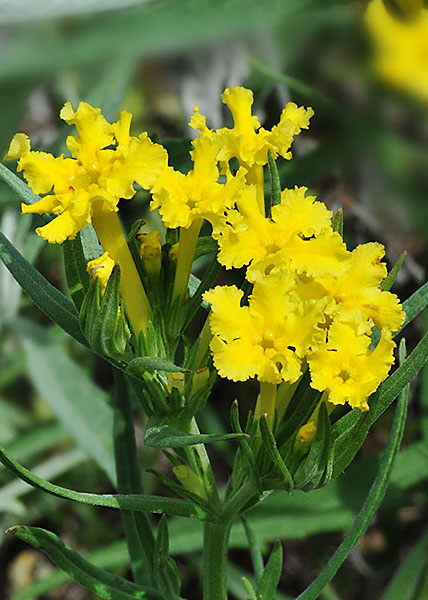
Date: May 15, 2013. Location: Ciha fen map
| Classification Hierarchy | |
| Kingdom | Plantae |
| Subkingdom | Tracheophyta |
| Superdivision | Spermatophyta |
| Division | Magnoliophyta |
| Class | Magnoliopsida |
| Subclass | Asteridae |
| Order | Lamiales |
| Family | Boraginaceae |
| Genus | Lithospermum |
| Species | Lithospermum incisum |

Date: May 15, 2013. Location: Ciha fen map
Scientific Name: Lithospermum incisum ( [Gr]litho=stone, spermum=seed, [L] incisum=cut in)
Common Name: fringed puccoon, narrowleaf stoneseed; puccoon was a native-american name for plants used to make dyes. Lithospermum species commonly have red roots.
Origin: Native, perennial
Notes: Lithospermum incisum produces two types of flowers, the yellow tubular type, shown at right, are produced in spring (April-May) and are evidently infertile; then latter in the year (June-August), less showy, cleistogamous flowers are produced. These develop, nearly invisibly, covered by their sepals, in leaf axils. They produce up to 4 (usually 1 or 2) nutlets—each with a single seed. Lithospermum is one of nine Iowa genera found in the family Boraginaceae.
Additional references: 1, 2, 3, 4, 5, 6, 7, 8, 9, 10, 11, Cleistogamy.
Flowers: yellow; dimorphic (two forms), the first form (salverform) is chasmogamous and appears in the upper leaf axils. They are showy and display long tubular corollas with fringed lobes. These are thought to be infertile (ref #10 above) and last only a few weeks. The second form (cleistogamous) never opens but self pollinates and is responsible for most of the viable seed set by the plant. These flowers occur in the leaf axils along the plant stem. Ovaries are 2-carpellate with 4 locules developing into 4 lobes. Each lobe can produce a single nutlet, but, in this population at least, often only one or two nutlets become viable, the others were aborted. Mature nutlets are 3 to 4 mm long, range in color from white to tan, and contain a single seed.
Leaves: linear to narrow lanceolate, hairy, with a central vein but without evident lateral veins.
Glossaries of botanical terms: 1, 2, 3, 4, 5, 6, 7, 8, 9, 10.
